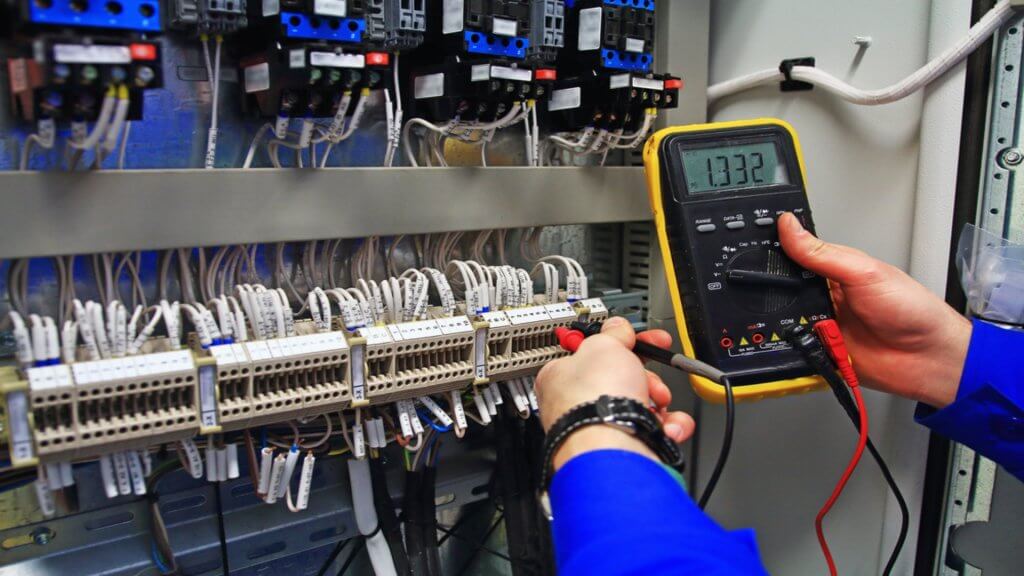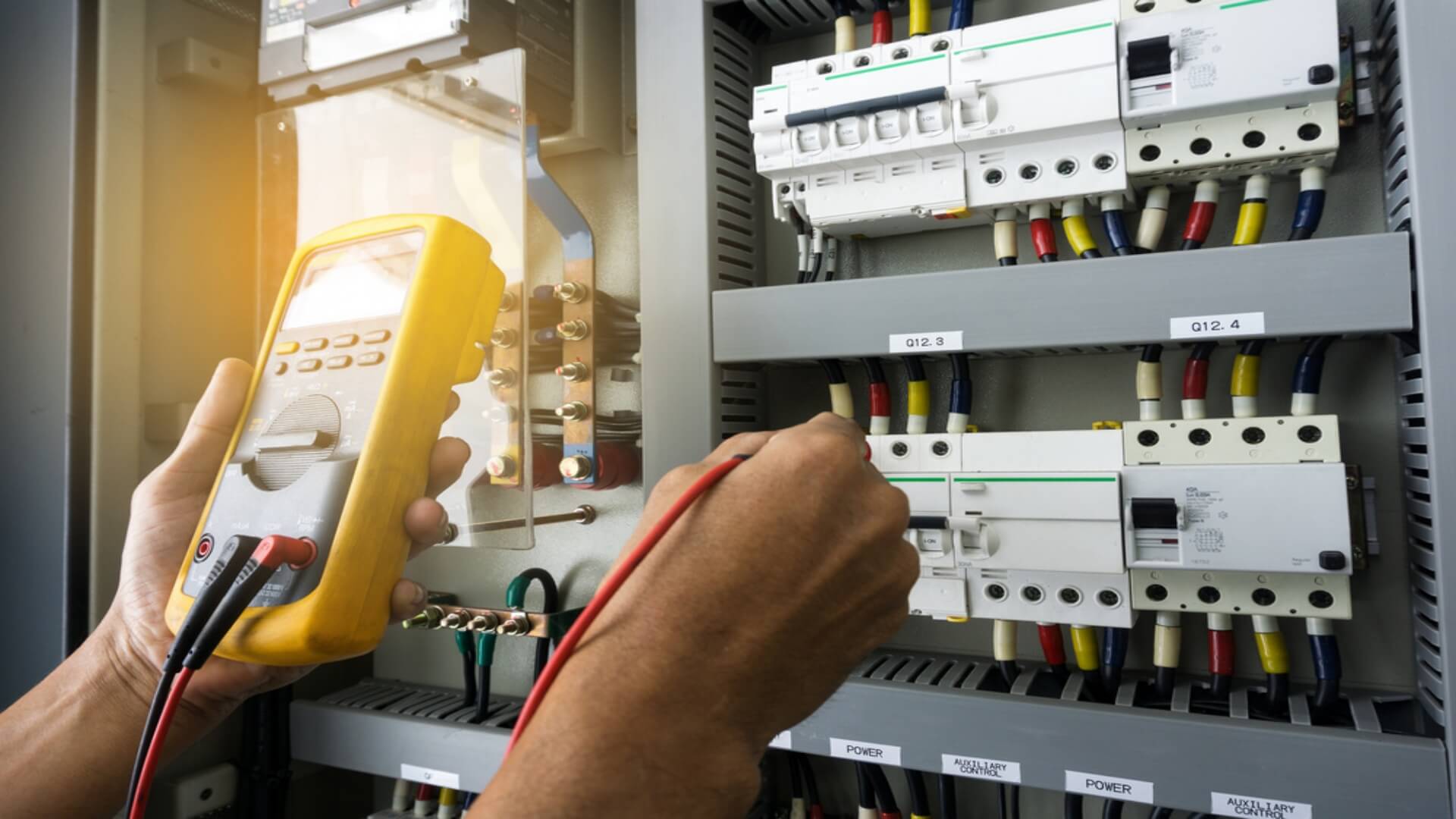Electrical testing is the process of evaluating an electrical system or component to determine its compliance with safety and performance standards. It’s typically carried out by qualified electricians trained to use specialised equipment to test various aspects of an electrical system.
Some essential equipment used to test electrical systems includes voltage testers, continuity testers, and multimeters. These tools allow electricians to measure an electrical system’s voltage, current, and resistance and identify any problems or issues. In addition to these tools, electricians may also use more advanced equipment such as oscilloscopes, infrared cameras, and hipot testers to do a more thorough inspection.
At any rate, regularly conducting electrical testing can provide peace of mind and added safety for occupants of the building. Fortunately, electrical testing services, such as Ipswich electricians, can provide professional electrical testing assistance to ensure the safety and performance of your electrical systems.
Read on to learn more about the types of electrical testing and their benefits.
Types Of Electrical Testing
Electricians use several methods to ensure an electrical system is safe and properly functioning. The types of electrical testing include the following:
1. Continuity Testing
Continuity testing is used to verify the integrity of an electrical system’s wires, connections, and other components to ensure that they can carry the electrical current without interruption. This testing is often performed while installing and commissioning new electrical systems, routine maintenance, and troubleshooting.
Several types of continuity testers can be used for this purpose, including analogue and digital multimeters and specialised continuity testers specifically designed for this type of testing. In general, continuity testers work by applying a small voltage to the circuit and measuring the resistance to determine if there’s a complete path for the current to flow.
If the resistance is low, this indicates that there is a good continuity, whereas a high resistance indicates that there is an interruption in the circuit.
2. Insulation Resistance Testing
Insulation resistance testing is a type of electrical testing used to measure the resistance of electrical insulation. It’s typically done to ensure that electrical equipment is properly insulated and safe to operate. The test is usually performed using an insulation resistance tester, which applies a voltage to the insulation and measures the resulting current.
The insulation resistance is calculated by dividing the applied voltage by the measured current. This test is essential because it can help identify problems with the insulation, such as cracks or damage, which can lead to electrical shorts or other safety hazards.
3. Ground Resistance Testing
Ground resistance testing is a procedure used to determine the resistance of a grounding system, such as a grounding electrode or grounding grid, to the flow of electric current. This type of testing is necessary because a well-designed and properly installed grounding system is essential for ensuring the safety of electrical equipment and personnel, and protecting against electrical hazards such as shock and fire.
The results of a ground resistance test can be used to determine whether the grounding system is functioning properly and to identify any potential problems or issues that may need to be addressed.
4. Voltage Testing
Voltage testing is a way to measure the electric potential difference between two points in an electric circuit. It’s typically done using a voltmeter, an instrument used to measure the voltage, or electrical potential difference, between two points in an electric circuit. The voltage is measured in units of volts, a fundamental quantity in electricity and electrical circuits.
Voltage testing is essential for electricians, engineers, and other professionals working with electrical systems. It ensures that a system’s electrical circuits operate safely. Electricians can use it to check for faulty wiring or other problems that could cause a circuit to malfunction or even pose a safety hazard.
5. Earth Leakage Testing
Earth leakage testing is a process used to determine whether electrical equipment is properly grounded and to detect any leaks or faults in the equipment that could cause an electrical shock. This testing is typically performed on electrical appliances and systems to ensure they are safe for use.
The process of earth leakage testing involves measuring the amount of current that flows between the ground and the equipment being tested. It’s typically done using an earth leakage circuit breaker (ELCB) device, designed to trip the circuit if the current flowing to the ground exceeds a certain level.
The ELCB is connected to the equipment being tested and to the ground. And the current is measured as the equipment is turned on and operated. If the equipment is properly grounded and has no leaks or faults, the current flowing to the ground should be minimal. However, if leaks or faults are present, the current flowing to the ground may be significantly higher, indicating a potential safety hazard.
Benefits Of Electrical Testing
Here are some of the key benefits of conducting regular electrical testing:
- It Identifies Electrical Hazards
Testing allows for identifying potential electrical hazards, such as loose connections, damaged equipment, and incorrect wiring, which can help prevent accidents and injuries.
- It Increases Efficiency
Electrical testing can help identify and fix problems that cause inefficiencies in electrical systems. It can improve systems’ performance and reliability, and reduce downtime.
- It Helps Meet Regulatory Requirements
In many cases, electrical testing is required by law to ensure the safety of buildings and equipment. Companies can ensure that they comply with applicable regulations by conducting regular testing.
- It Prevents Injuries And Damage
If not addressed immediately, electrical hazards can result in significant property damage and injuries. Early prevention is possible with electrical testing.
Conclusion
Overall, conducting electrical tests like those mentioned above is beneficial for your home or business. Doing so can help you ensure that any potential issues with your systems and other electrical devices will be identified and addressed before they cause any danger.
































